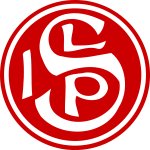Independent Labour Party
|
Independent Labour Party
|
|
|---|---|
 |
|
| Founded | 1893 |
| Dissolved | 1975 |
| Preceded by | Scottish Labour Party |
| Succeeded by | Independent Labour Publications (pressure group inside the Labour Party) |
| Newspaper | Labour Leader |
| Ideology |
Socialism, Democratic socialism, Marxism, Social democracy |
| Political position | Left-wing |
| International affiliation |
International Working Union of Socialist Parties International Revolutionary Marxist Centre |
The Independent Labour Party (ILP) was a socialist political party in Britain established in 1893, in Bradford. The ILP was affiliated to the Labour Party from 1906 to 1932, when it voted to leave. The organisation's three parliamentary representatives defected to the Labour Party in 1947 and the organisation rejoined the Labour Party as Independent Labour Publications in 1975.
As the 19th century came to a close, working-class representation in political office became a great concern for many Britons. Many who sought the election of working men and their advocates to the Parliament of the United Kingdom saw the Liberal Party as the main vehicle for achieving this aim. As early as 1869 a Labour Representation League had been established to register and mobilise working-class voters on behalf of favoured Liberal candidates.
Many trade unions themselves became concerned with gaining parliamentary representation to advance their legislative aims. From the 1870s a series of working-class candidates financially supported by trade unions were accepted and supported by the Liberal Party. The federation of British unions, the Trades Union Congress (TUC), formed its own electoral committee in 1886 to further advance its electoral goals.
Many socialist intellectuals, particularly those influenced by Christian socialism and similar notions of the ethical need for a restructuring of society, also saw the Liberals as the most obvious means for obtaining working-class representation. Within two years of its foundation in 1884 the gradualist Fabian Society officially committed itself to a policy of permeation of the Liberal Party.
A number of so-called "Lib-Lab" candidates were subsequently elected Members of Parliament by this alliance of trade unions and radical intellectuals working within the Liberal Party.
The idea of working with the middle-class Liberal Party to achieve working-class representation in parliament was not universally accepted, however. Marxist socialists, believing in the inevitability of class struggle between the working class and the capitalist class, rejected the idea of workers making common cause with the petty bourgeois Liberals in exchange for scraps of charity from the legislative table. The orthodox British Marxists established their own party, the Social Democratic Federation (SDF) in 1881.
...
Wikipedia
